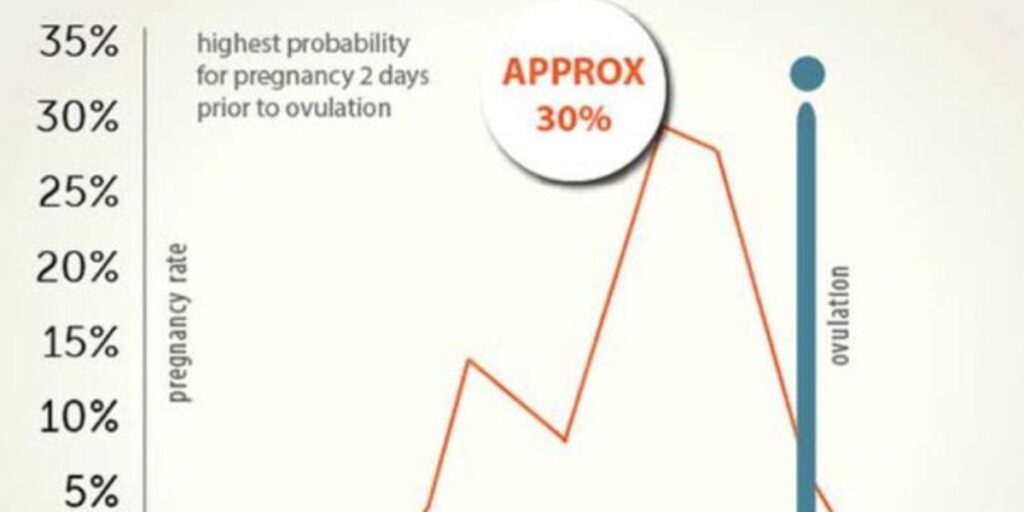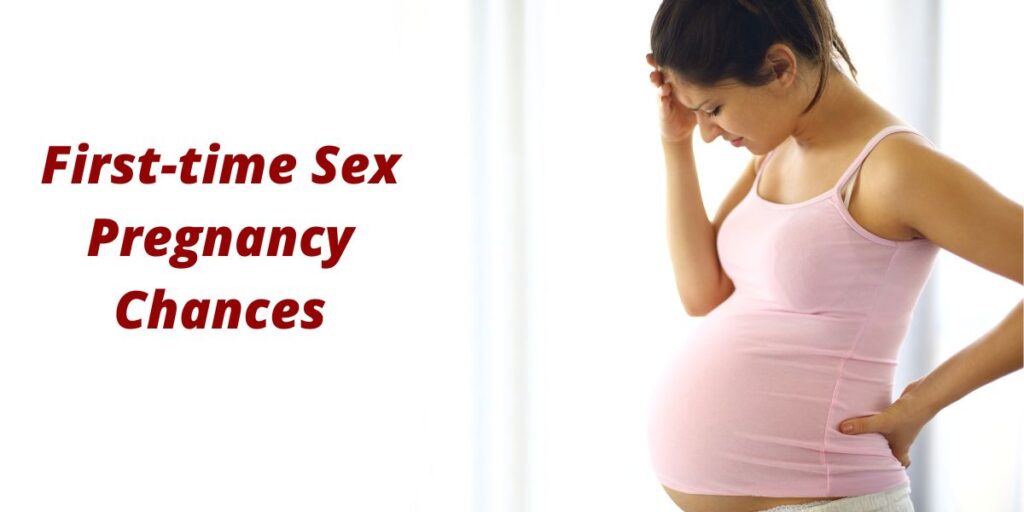The first-time sex pregnancy chances are high if you have an unprotected intercourse. According to a study, if you have unprotected sex, then there is a 30% chance you will become pregnant.
For many people, their first time experiencing sex can be very exciting as well as nerve-racking. If you engage in unprotected sex or do not perform it correctly, your first time sex can cause pregnancy.
First-time sex pregnancy chances not only depend upon whether you’re using protection or not but also depend upon the date of your menstrual cycle. It depends on where you are in your menstrual cycle when you have sex.
Women are only fertile for up to six days every month and have a viable egg for only 12–24 hours of those six days. Sperm can survive inside a woman’s body for several days before fertilizing the egg when it is expelled.
First-time Sex Pregnancy Chances- Scientific Overview
Many people believe that their first time sex can cause pregnancy. This is far from the truth.
Pregnancy is dependent on both men’s and women’s fertility. Some women may consider after months or even years of trying, whereas others may consider whenever they engage in sexual encounters, regardless of whether it is their first time and they have no desire to become pregnant.
According to a study, the chances of getting pregnant for the first time sex reduce by 2-5% if you use contraceptives. Using conception prevention and condoms can reduce the risk of unintended pregnancy for first-time sex.
First-time Sex Pregnancy Chances Without Protection?
Yes! Pregnancy can occur when sperm from your partner enter the vagina or vulva. And this might occur at any time you have unprotected sex. As a result, if both couples are fertile and this occurs for the first time sex can definitely cause pregnancy!
According to another study engaging in sexual contact without the use of contraception can result in a young girl being pregnant, regardless of whether she is having intercourse for the first time or has had it numerous times before.
Read More: How to Confirm Whether Sperm Went Inside
Signs Of Pregnancy

During pregnancy, significant hormonal changes occur. These cause a wide range of symptoms. Some women have a lot of pregnancy symptoms, while others just have a few.
Are you expecting a child? Some early pregnancy symptoms may appear around the time you miss a period or a week or two before or after.
Early pregnancy symptoms include nausea, tiredness, frequent urination, and breast tenderness. Other early pregnancy signs and symptoms include mood changes, mild spotting and cramping, bloating, and constipation. Although not every woman has early pregnancy symptoms, many do.
Early pregnancy symptoms may include:
- Missed Menstrual cycle
- Nausea and vomiting (often referred to as “morning sickness,” but it can occur at any time)
- Tenderness and expansion of the breasts
- Tiredness
- You crave certain foods, you feel disgusted with things you normally enjoy, and you experience a sour or metallic taste that lasts even when you’re not eating (dysgeusia).
- Implantation/bleeding/spotting
- Mood swings
- Abdominal bloating
Read More: Heavy Menstrual Bleeding
Risk Factors of Having Sex Without Protection
- Aside from the concern of whether or not one time sex can cause pregnancy, sexual activities also predispose you to STIs, or sexually transmitted infections, each time you have unprotected sex.
- Both STIs and pregnancy can be avoided by using condoms every time you engage in sexual activity. Many young adults understand the fundamentals of sex education, but myths remain.
It’s very important to use protection to lower the chances of a risk factor. It really does not matter whether you’ve had genital intercourse or oral sex. There is a risk of getting infected.
How To Avoid Pregnancy After Sex?
First-time sex pregnancy chances can be avoided in various ways.
- Contraceptive pills:- Emergency contraception is a method of preventing pregnancy following unprotected sex. Emergency contraceptive pills (ECPs), sometimes known as the morning-after pill, are pills that can be taken up to 120 hours (5 days) after having unprotected intercourse.
- IUD- intra-uterine devices:– A professional healthcare worker inserts this little, T-shaped device into a woman’s uterus, which is constructed of material containing progesterone hormone or plastic and copper.
It is a long-acting, reversible method of contraception that can be used for three to ten years, depending on the type. To prevent pregnancy, certain IUDs contain hormones that are gradually released.
If fitted by a healthcare expert within five days (120 hours) of having unprotected intercourse, the IUD can also be effective emergency contraception. IUDs containing coppers are 99% successful, and those containing hormones are 99.8% effective, so you’re about as safe as a contraceptive method can get.
Apart from the two major methods mentioned above, there are other methods that can be used to prevent first-time sex pregnancy chances, such as the use of male and female condoms, permanent sterilization, diaphragm, contraceptive ring, contraceptive injection, and contraceptive implants, among others.
How Many Times Do We Have Sex To Get Pregnant?
There is no magic number of sex sessions required to become pregnant. There is also the possibility of producing tension by forcing yourself to adhere to a timetable. The best bet is to have as much sex as you feel comfortable with and to use your ovulation calendar to help you determine when the best times are.
Because sperm can remain in the human body for many days and a woman’s egg can only last for 24 hours, the optimal time to become pregnant is a few days before ovulation. Couples should try to have sex every other day from five days before ovulation until the day after ovulation.
Best Time To Have Sex To Get Pregnant

After ovulation, when the egg is released into the body and fertilized by sperm, pregnancy occurs. What many people don’t realize is that once you’ve ovulated, you only have around a 12-hour window to conceive.
Because an egg’s lifespan after ovulation is just approximately 24 hours, if it is not fertilized during the first 12 hours following ovulation, pregnancy is unlikely.
Because of the short post-ovulation window, it’s critical to have intercourse as soon as possible after ovulation. Sperm can remain inside your cervix for around 72 hours, so having intercourse within three days of ovulation will increase your chances of getting pregnant. So when the egg is released, there is already sperm inside the cervical reservoirs ready to fertilize it.
Over-the-counter ovulation strips, which help you pinpoint when you’re about to ovulate—and hence when you should be having sex to maximize the likelihood of pregnancy—are one of the most reliable ways to know when you’re going to ovulate.
Read More: 5 Nutrients to Increase your Progesterone Naturally
Conclusion
When attempting to conceive, each person will have a unique experience. Some will become pregnant immediately, while others may take a year or more to conceive. People who are having difficulty conceiving should discuss their concerns with their doctor.
Fertility problems might well be solved by a healthcare professional. Getting pregnant in the first month of trying is achievable for some people. Many people will become pregnant within the first attempt of unprotected sex.
A female’s chances of becoming pregnant can be increased by charting their ovulation cycle and maintaining a healthy weight and lifestyle. So, it has been cleared that first-time sex pregnancy chances are high if done without protection. So never ever go out to make love without protection.


